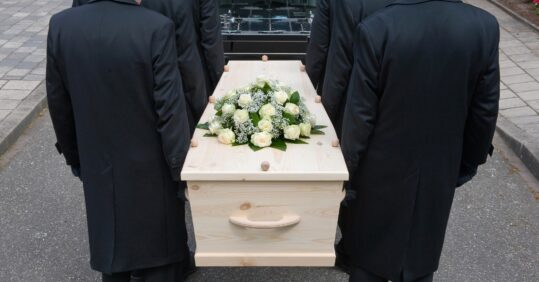Supporting yourself as a nurse through bereavement during Covid-19

Grieving is a normal part of life. However even during periods of stability, it can be one of the most distressing things we will ever have to deal with. At Cruse, we know that two of the most profound effects on our grief can be how the person has died, and our own circumstances whilst we are grieving. Both of these factors have been strongly impacted by the coronavirus.
For nurses working on the frontline, this is even more so the case. Nurses will be dealing with extremely distressing events and increased bereavements, while working under pressured and stressful conditions.
Nurses may have been additionally affected by the coronavirus in a number of different ways. First and foremost, while nurses often deal with patient deaths, the current numbers will be unprecedented. You may have been affected in other ways such as:
· You may have lost colleagues, or be worried about co-workers who are very ill.
· You may be extremely anxious for your own health or that of your family.
Related Article: NHS plan delivery must equip and empower nurses, midwives and nursing associates
· You may be deeply affected by the death of those in your care – whether or not you have known or cared for them for a long time.
· You may be exhausted and if things get very bad you may burnout and feel unable to continue.
· You may be traumatised by what you have witnessed, and develop Post Traumatic Stress Disorder (PTSD). Compassion fatigue is another issue that can arise when people are driven to the brink while caring in traumatic circumstances.
How to cope
One of the most important, and yet seemingly most simple things you can do is to look after yourself at this challenging time. We know that some of these suggestions will not be practical if you are working long hours, but do think about what you can do. Some may be able to put in place later down the line.
Learn to be aware of and monitor your resilience – your psychological strength to cope when times are hard and stressful. Some days will be harder than others. On the difficult days ask for help if you can (from colleagues, friends and family, external helplines and so on), and when you are stronger offer to help others who may be struggling.
Take time for yourself when you can – we know it is easier said than done, but take time for yourself when you can. Consider what helps you to relax and recharge, and try to schedule in some time to do those things. Put them in your diary – you can best care for others if you have looked after yourself as much as possible. Again it is easier said than done, but try to practice self-compassion. Treat yourself as you would a friend or loved one who was dealing with the same situation.
Talk to people – talk to friends and relatives if it helps you, but don’t feel bad if you cannot share things with them at the moment. It can sometimes be hard to put difficult situations and the feelings that go with them into words. Explain to those close to you how they can help, and that this might change from day to day.
Related Article: NMC seeks nursing leader to oversee Code and revalidation reviews
Use any support which is in place at your place of work. Recognise the symptoms and early warning signs of trauma, PTSD, and burnout. Contact your management if you are worried – many organisations have dedicated mental health support or helplines you can contact.
How you can help someone else
If you know colleagues and patients or residents, are bereaved and finding it hard to cope, it’s important that you do what you can to try and help them. Reaching out to others is more important now than ever.
The best way to help someone is to be there for them, but respect their wishes and find out how you can best help. Some people may want to talk about what they are doing, but others will need you as a break from the relentlessness of what they are dealing with. What they need from you may change from day to day.
If you are worried about their mental health, do encourage them to find out what support is available through their work. You may be able to do some research for them, and encourage or help them to get in touch. If there is no help through work or they need more than what is on offer then they can contact their GP. If they’ve been bereaved remember everyone grieves in their own time and their own way.
How Cruse can help
Related Article: Tell us what practice nursing means to you and potentially win £1,000
If you’re struggling with your own bereavement, have been affected by the death of a client or patient, or are affected by the grief of those around you, we can help. Cruse is continuing to offer as much support as possible over the phone or web.
You can call our National Freephone Helpline on 0808 808 1677. Opening hours are Monday-Friday 9.30-5pm (excluding bank holidays), with extended hours on Tuesday, Wednesday and Thursday evenings, when we’re open until 8pm.
There is a lot of information elsewhere on the website, including more on traumatic bereavement. Our Local Services are offering telephone and online support. Find the details of your Local Service.

See how our symptom tool can help you make better sense of patient presentations
Click here to search a symptom


Nurses will be dealing with extremely distressing events and increased bereavements, while working under pressured and stressful conditions.
Nicky Dias



